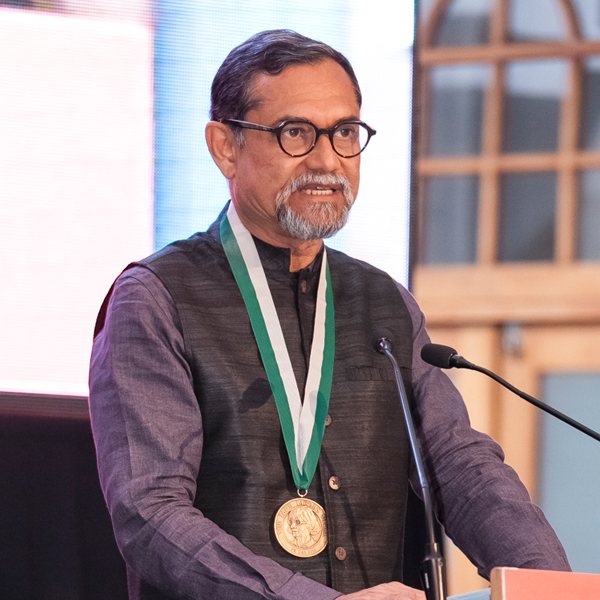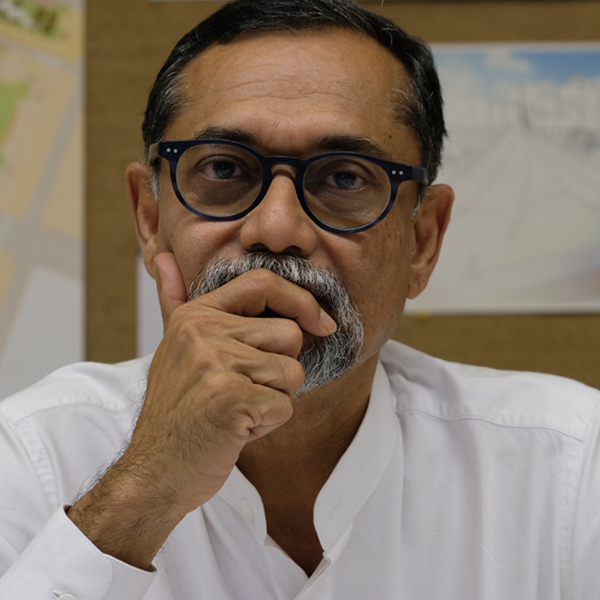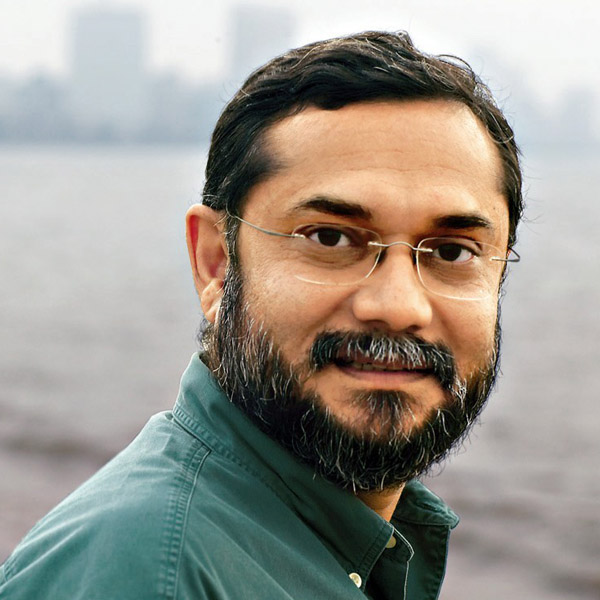

_0011_600.jpg)

In any country, but more so in a diverse, populous and unevenly developing country like India, architecture needs to be inextricably connected with larger public aspirations.
PK, as he is known to friends and colleagues, believes that architecture as well as the larger umbrella of town planning must be charged with the highest democratic ideals.
Not only is this possible, it can actually be cost-efficient, ecologically-sensitive, aesthetic and deeply rewarding for all ‘stake-holders’, to use a word from the currently popular but increasingly discredited ‘neoliberal’ dictionary.
Establishing a close relationship between architecture and people, placing a strong emphasis on participatory planning from the very beginning and at every stage, are the keynotes of this approach that manifests in Das’ various projects involving public spaces.
He regularly works with many citizens and neighborhood organizations spearheading area re-development programs and projects, including filing public interest petitions in law courts for justice. His plans for a neighborhood in Mumbai and the publication of ‘Vision Juhu’ book expresses his commitment to the idea of neighborhood based city planning that enables maximum participation. He has also been Committee Member of several governmental initiatives.
Das’work and views have been widely published. He has authored and co-authored several books and publications too. As a committed campaigner he has co-directed and co-produced two documentary films. In recognition of his works and contribution he has been invited to deliver talks and lectures in universities and conferences around the world.
His wide spectrum of work includes organizing slum dwellers for better living and evolving affordable housing models, engaging in policy framework for mass housing, reclaiming public spaces, developing the waterfronts, integrating the natural areas & urban renewal projects along with mainstream architectural practice involving urban planning, urban design, architecture and interior design assignments, under PK Das & Associates of which he is the founder.
His deepest commitment above all is to the idea of public spaces being the foundation of city planning. Public spaces ensure both physical, social and democratic well-being of the larger population. Sadly, as cities expand public spaces are rapidly shrinking and this needs to be resisted by raising awareness and by organizing people.
Far from being a ‘luxury’ in a real estate driven world, public spaces architecture generates dialogue and engagement, influencing planning and re-envisioning of our cities.
This was demonstrated in a large public exhibition in in the city, ‘Open Mumbai’ that explained and reiterated to ordinary citizens that it is possible to re-envision the city. Another reflection of this commitment to engage with reclaiming public spaces movements and projects is the book: “On The Waterfront; Reclaiming Mumbai’s Open Spaces” co-authored by Das, which provides deep insight into issues relating to open spaces and participatory city planning.
His work in the expansion of public spaces, the development of Mumbai’s coastline in particular and his slum rehabilitation projects have won him several national and international awards including the first ‘Urban Age Award’ instituted by the London School of Economics and Deutsche Bank, which was conferred to the Mumbai Waterfronts Centre of which PK Das is the Chairperson.
Other awards include ‘Clearwater Citizens Award’ by ‘Waterfront Center’, Washington, USA, 2002 and most recently the prestigious first International ‘Jane Jacobs Medal- 2016.
Growth of urbanization is increasingly dividing our cities into disparate fragments, both in social and spatial terms. Indeed, our cities are producing more backyards of discrimination, neglect and abuse; even the natural habitats are being systematically destroyed.
Along with other activists, Das is committed to the unification of these disparate fragments as well as the integration and improvement of the ‘backyards’ through planning and architectural endeavors. His current engagement in the integration of the over 300 kms of Mumbai’s open drains and water courses and turning them into streams of vibrant public spaces is an unique effort. Similarly, his mapping of slums in Mumbai and preparing a comprehensive slums redevelopment and integration plan is noteworthy.
As joint convener of Nivara Hakk, a slum dwellers housing rights movement he has since 1980 carried-out significant slum redevelopment and rehabilitation work, besides working with the organization in setting-up health care and primary educational centers in slums in Mumbai. His contribution in preparing a participatory plan and design for the rehabilitation of 25000 evicted families from the National Park is probably the largest rehabilitation project in the country.
Mumbai
Dated: October, 2016